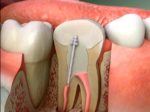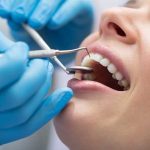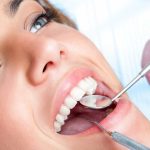Why Biting Down Causes Teeth Pain: Understanding the Causes and Treatment Options

Teeth pain is a common issue that affects many people, and it can be caused by a variety of factors. However, one of the most common causes of teeth pain is biting down, which can lead to discomfort and even severe pain. Understanding the causes of teeth pain when biting down is essential to finding the appropriate treatment options to alleviate the discomfort. Biting down can cause teeth pain due to a variety of reasons, including grinding, clenching, or dental issues such as cavities, cracked teeth, or gum disease. These issues put pressure on the teeth and can lead to sensitivity, nerve damage, and inflammation, resulting in pain while chewing or biting down on food. If left untreated, these issues can worsen, leading to more severe pain and potential tooth loss. Therefore, it is crucial to identify the cause of teeth pain when biting down and seek appropriate treatment options to prevent further damage and discomfort.
Tooth pain is a common dental problem that can be caused by many factors, one of which is biting down. Biting down can cause a sharp pain in one or more teeth, which can be quite uncomfortable. This pain can be caused by several factors, including tooth decay, cracked or chipped teeth, gum disease, or even clenching or grinding of the teeth. It is important to understand the causes of tooth pain and seek proper treatment, as untreated tooth pain can lead to more serious dental problems. Treatment options for tooth pain caused by biting down may include dental fillings, root canals, or even tooth extraction in severe cases.
Understanding the causes and treatment options for teeth pain is crucial for maintaining good oral health and preventing further damage. Teeth pain can be caused by a variety of factors, such as tooth decay, gum disease, or injury. By identifying the root cause of the pain, dental professionals can recommend appropriate treatment options, such as fillings, root canals, or extractions. Ignoring teeth pain can lead to more serious issues, such as infections or abscesses, which can require more invasive and costly procedures. Therefore, it is important to seek professional help as soon as possible to address any teeth pain and prevent further damage to your teeth and overall oral health.
Anatomy of Teeth

The anatomy of teeth is complex and unique, with each tooth consisting of different layers and structures. The outer layer of a tooth is known as the enamel, which is the hardest substance in the human body. This layer protects the inner layers of the tooth from damage and decay caused by chewing, biting, and grinding. Underneath the enamel is the dentin, which is softer than the enamel but still strong enough to withstand pressure. The dentin contains tiny tubes that lead to the nerve of the tooth, which can become exposed when the enamel is worn away, leading to tooth sensitivity and pain. The innermost layer of the tooth is the pulp, which contains blood vessels and nerves that keep the tooth alive. If the pulp becomes infected or damaged, it can cause severe pain and may require a root canal to save the tooth. When biting down causes teeth pain, it typically means that there is an issue with one of the layers of the tooth. If the enamel is worn away, the dentin may be exposed, causing sensitivity and pain. This can be caused by grinding, brushing too hard, or consuming acidic foods and drinks. If the pulp is infected or damaged, it can cause a sharp, intense pain that may be accompanied by swelling or a bad taste in the mouth. In some cases, a cracked tooth or a loose filling can also cause pain when biting down. Treatment options for tooth pain caused by biting down depend on the underlying cause and may include desensitizing toothpaste, dental fillings or crowns, root canals, or extractions. It is important to see a dentist as soon as possible if you are experiencing tooth pain, as untreated issues can lead to further damage and more severe pain.
The structure of teeth is a complex and fascinating system that allows us to break down food and speak clearly. Teeth are composed of several layers, including the enamel, dentin, and pulp. The outermost layer, enamel, is the hardest substance in our bodies and protects the sensitive layers underneath. Beneath the enamel lies the dentin, which is softer and contains tiny tubules that connect to the pulp. The pulp is the innermost layer of the tooth and contains nerves and blood vessels that keep the tooth alive. The root of the tooth is anchored to the jawbone by the periodontal ligament, which also helps to absorb the shock of biting and chewing. Understanding the structure of teeth is crucial in diagnosing and treating teeth pain, as any damage to one or more of these layers can cause discomfort or sensitivity.
Enamel, dentin, and pulp are the three layers of teeth that play a vital role in teeth pain. Enamel is the hard, outermost layer that protects the teeth from damage and decay. Dentin is a softer layer beneath the enamel that contains microscopic tubules that connect to the nerves in the pulp. The pulp is the innermost layer of the tooth that contains nerves and blood vessels. When enamel is worn down or damaged, the dentin and pulp can become exposed to external stimuli, such as cold or hot food and drinks, which can cause pain. Additionally, if the pulp becomes inflamed or infected due to decay or trauma, it can cause severe pain that requires prompt treatment. Understanding the role of enamel, dentin, and pulp in teeth pain can help individuals take steps to maintain their oral health and seek appropriate treatment when necessary.
Common Causes of Teeth Pain When Biting Down
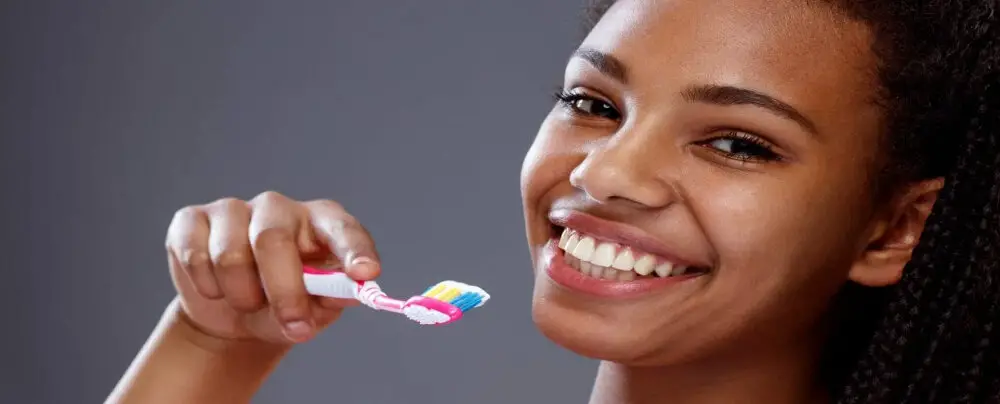
Biting down can be a painful experience for many individuals. Teeth pain when biting down can be a result of several underlying causes. A common cause of teeth pain when biting down is tooth decay. Tooth decay occurs when bacteria in the mouth produce acid that eats away at the tooth’s enamel. If left untreated, tooth decay can cause cavities to form, which can lead to sensitivity and pain when biting down. Other symptoms of tooth decay may include tooth sensitivity to hot and cold temperatures, visible holes or pits in the teeth, and a bad taste in the mouth. Another common cause of teeth pain when biting down is a cracked or fractured tooth. A tooth can become cracked or fractured due to several reasons, including trauma, grinding or clenching of the teeth, or biting down on hard objects. When a tooth is cracked or fractured, it can cause pain when biting down, especially if the crack or fracture is deep enough to expose the sensitive inner layers of the tooth. In severe cases, a cracked or fractured tooth may require root canal therapy or even extraction if the damage is irreparable. Therefore, it is essential to seek dental treatment if you experience teeth pain when biting down, as it could be a sign of a more severe underlying issue.
Tooth decay, also known as dental caries, is a common dental problem that occurs when plaque, a sticky film of bacteria, accumulates on the teeth and produces acid that erodes the enamel. Over time, this can lead to the formation of cavities, which are small holes in the teeth that can cause sensitivity, pain, and discomfort. Poor oral hygiene, a high sugar diet, and certain medical conditions can increase the risk of tooth decay and cavities. Treatment options for tooth decay and cavities include fillings, dental crowns, and root canal therapy, depending on the severity of the damage. Preventative measures such as regular brushing and flossing, reducing sugar intake, and visiting the dentist for routine check-ups can help reduce the risk of tooth decay and cavities.
Cracked or chipped teeth are a common dental problem that can cause significant discomfort and pain. This condition can occur due to various reasons such as chewing hard foods, grinding teeth, or trauma to the mouth. The symptoms of cracked or chipped teeth include sensitivity to heat, cold, and pressure, pain while chewing, and visible damage to the tooth. If left untreated, the damage can worsen, leading to infection and tooth loss. The treatment for cracked or chipped teeth depends on the severity of the damage. In minor cases, dental bonding or filling can restore the tooth’s structure. However, in severe cases, a root canal or tooth extraction may be necessary. It is essential to seek dental treatment as soon as possible to prevent further damage and alleviate the pain.
Bruxism, or teeth grinding, is a common condition that affects many people. This condition occurs when a person clenches or grinds their teeth, often unconsciously, during the day or at night. Bruxism can lead to a variety of dental problems, including tooth sensitivity, jaw pain, and headaches. The causes of bruxism are not fully understood, but stress and anxiety are believed to be contributing factors. Treatment options for bruxism include stress management techniques, mouthguards, and dental interventions such as reshaping or restoring damaged teeth. It is important to address bruxism early on to prevent further damage to teeth and surrounding structures.
Treatment Options for Teeth Pain When Biting Down
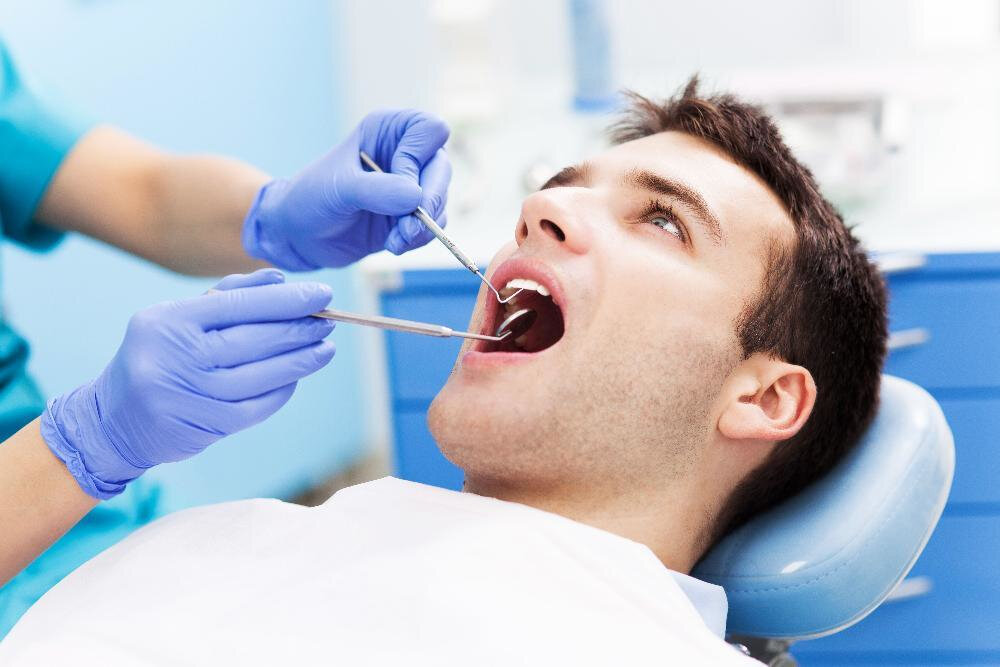
Teeth pain when biting down is a common dental problem that can be caused by various factors. Treatment options for this condition depend on the underlying cause of the pain. One of the most common causes of teeth pain when biting down is tooth decay. In such cases, the dentist will recommend a filling or crown to restore the tooth’s structure and prevent further decay. Root canal therapy may be necessary if the decay has spread to the tooth’s pulp, causing an infection or abscess. Another common cause of teeth pain when biting down is teeth grinding or clenching. This condition can be treated with a custom-made mouthguard that is worn at night to protect the teeth from further damage. Pain medication or muscle relaxants may also be prescribed to relieve pain and reduce muscle tension. In some cases, orthodontic treatment may be necessary to correct the bite and prevent further damage to the teeth. Whatever the cause of teeth pain when biting down, it is important to seek prompt treatment to prevent further damage to the teeth and gums.
When tooth decay or cavities occur, the most common treatments are fillings, root canals, and crowns. Fillings are typically used for small to moderate cavities and involve removing the decayed portion of the tooth and filling the space with a material such as composite resin or amalgam. Root canals are necessary when the decay has spread to the inner pulp of the tooth and involve removing the infected tissue and filling the space with a rubber-like material. Crowns are used for more extensive damage or after a root canal, and involve placing a cap over the tooth to protect it from further damage. While these treatments may vary in complexity and cost, they can all effectively restore the function and appearance of a decayed or damaged tooth.
Dental bonding, veneers, and dental implants are all viable treatment options for cracked or chipped teeth. Dental bonding involves applying a tooth-colored resin to the damaged area, which is then hardened with a special light. Veneers are thin shells that are custom-made to fit over the front of the tooth, covering up any chips or cracks. Dental implants, on the other hand, involve surgically inserting an artificial tooth root into the jawbone, which then supports a replacement tooth or bridge. Each of these options has its own benefits and drawbacks, and the best choice depends on the severity of the damage and the individual patient’s needs and preferences. A consultation with a dental professional can help determine the most appropriate course of action.
Gum disease, also known as periodontal disease, is a common dental problem that affects the gum tissues surrounding the teeth. If left untreated, it can lead to tooth loss and other serious health complications. Scaling and root planing is a non-surgical treatment option that involves removing plaque and tartar buildup from the teeth and roots, followed by smoothing out the root surfaces to prevent further bacterial growth. Antibiotics may also be prescribed to help control the infection. In severe cases, surgery may be necessary to remove damaged tissues and reshape the bone surrounding the teeth. It’s important to address gum disease early on to prevent further damage and maintain good oral health.
Bruxism, the medical term for teeth grinding and clenching, can cause significant discomfort and pain in the teeth, jaw, and surrounding muscles. One effective treatment option for bruxism is the use of mouthguards, which are custom-made to fit the patient’s teeth and prevent the grinding and clenching that causes dental damage. Additionally, relaxation techniques such as meditation and deep breathing can help reduce stress and tension, which are often contributing factors to bruxism. By incorporating these treatment options into a comprehensive dental care plan, individuals suffering from bruxism can find relief from their symptoms and protect their teeth from further damage.
Preventing Teeth Pain When Biting Down
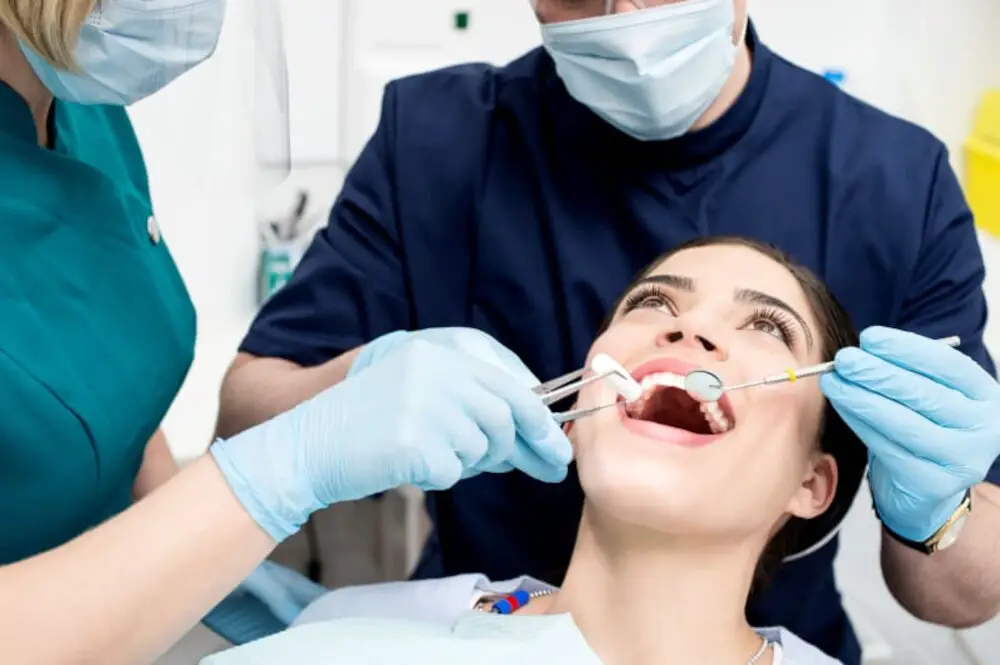
Teeth pain when biting down can be a frustrating and uncomfortable experience that can interfere with daily activities such as eating and speaking. However, there are ways to prevent this type of pain from occurring. One of the most important steps is to maintain good oral hygiene practices such as brushing and flossing regularly. This can help prevent tooth decay and gum disease, two common causes of teeth pain when biting down. In addition to good oral hygiene practices, it is important to avoid hard or crunchy foods that can cause stress on the teeth. Chewing on ice or biting down on hard candy can cause cracks or chips in the teeth, which can lead to pain when biting down. It is also important to wear a mouthguard if you grind your teeth at night or participate in contact sports. This can help prevent damage to the teeth and reduce the risk of teeth pain when biting down. By taking these steps, you can help prevent teeth pain when biting down and maintain good oral health.
Good oral hygiene practices are essential for maintaining healthy teeth and gums. Brushing your teeth twice a day with fluoride toothpaste and flossing daily can help remove plaque and prevent tooth decay and gum disease. It’s also important to limit sugary and acidic foods and drinks, as they can erode enamel and lead to dental problems. Regular visits to the dentist for cleanings and check-ups can also help catch issues early on and prevent them from becoming more severe. Taking care of your teeth and gums can not only prevent pain and discomfort but also ensure a bright and confident smile for years to come.
Regular dental checkups are an essential aspect of maintaining good oral health. During these appointments, a dentist can identify any dental problems early on, such as cavities or gum disease. They can also provide preventative care, such as cleanings and fluoride treatments, to keep teeth and gums healthy. Neglecting regular checkups can lead to more significant problems down the line, such as tooth decay or even tooth loss. It is recommended that individuals visit their dentist every six months to maintain optimal oral health. By doing so, they can ensure that any issues are caught early and treated promptly, leading to a healthier and more confident smile.
Wearing a mouthguard during sports or at night can be a simple yet effective solution to prevent teeth pain caused by biting down. Sports activities such as football, basketball, and others can lead to collisions and impacts that may cause dental injuries. A mouthguard can absorb the impact and distribute the force evenly, protecting the teeth and gums. Similarly, bruxism or teeth grinding during sleep can cause significant damage to the teeth and jaw muscles. A custom-fitted mouthguard can provide a cushion between the upper and lower teeth, reducing the pressure and preventing further damage. Consult with a dentist to find the best mouthguard that suits your needs and protects your oral health.
Avoiding hard or sticky foods is crucial for preventing teeth pain. When you bite down on hard or crunchy foods, it can cause microfractures in your teeth or irritate any existing cracks. Similarly, sticky foods like caramel or taffy can pull on your teeth, dislodging fillings or even causing teeth to break. To minimize the risk of tooth pain, it’s best to steer clear of these types of foods, especially if you already have weakened teeth or dental work. Instead, opt for softer foods or cut your food into smaller pieces to make it easier to chew. By taking these small steps, you can protect your teeth and prevent unnecessary discomfort.
The article \Why Biting Down Causes Teeth Pain: Understanding the Causes and Treatment Options\ discusses the various reasons why people experience pain when biting down with their teeth. The main causes of such discomfort include cavities, cracked or chipped teeth, gum disease, and jaw joint problems. These problems can lead to tooth sensitivity, pain, and discomfort while chewing, and can be treated using various methods such as dental fillings, root canal therapy, tooth extractions, and orthodontic treatment. Maintaining good oral hygiene, avoiding hard or sticky foods, and wearing protective mouthguards during sports activities can also prevent tooth pain caused by biting down. Overall, seeking professional dental care and following recommended preventive measures can help alleviate the discomfort caused by biting down.
Experiencing teeth pain when biting down can be a sign of a serious dental issue, and it’s important not to ignore it. While there are several potential causes for this kind of pain, seeking professional help from a qualified dentist is essential. Delaying treatment may lead to further complications and more extensive dental work. A professional will be able to diagnose the cause of the pain and recommend appropriate treatment options to alleviate the discomfort. Don’t let teeth pain disrupt your daily life, seek help from a dental professional who can provide the necessary care to get you back to feeling your best.
Conclusion

In conclusion, teeth pain caused by biting down can be a frustrating and uncomfortable experience. Understanding the causes of this pain, such as tooth decay, cracked teeth, or bruxism, is crucial in finding the appropriate treatment option. Whether it be a filling or crown for decay, a root canal for a cracked tooth, or a mouthguard for bruxism, seeking professional dental care is the best course of action. Additionally, practicing good oral hygiene habits, such as brushing and flossing regularly, can prevent future tooth pain and promote overall dental health. Remember, taking care of your teeth is essential for a pain-free and healthy smile.



